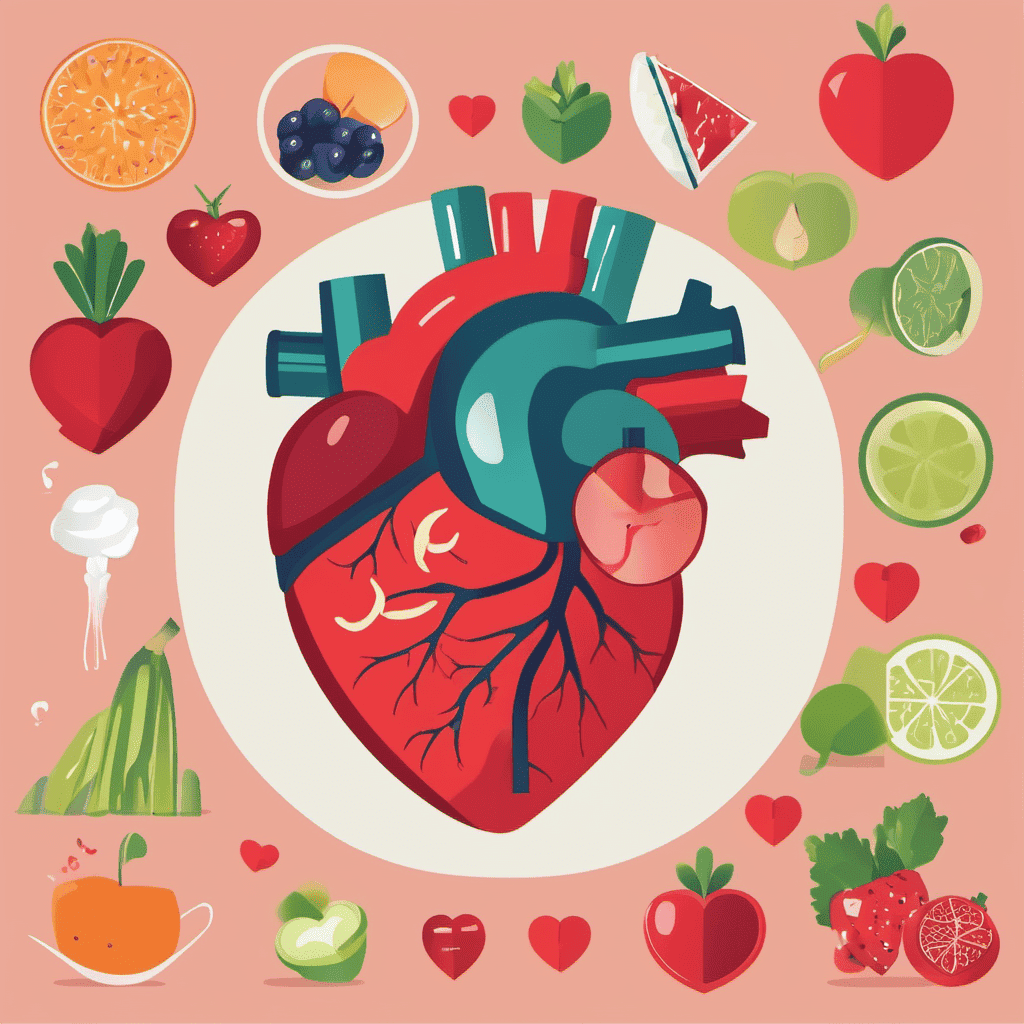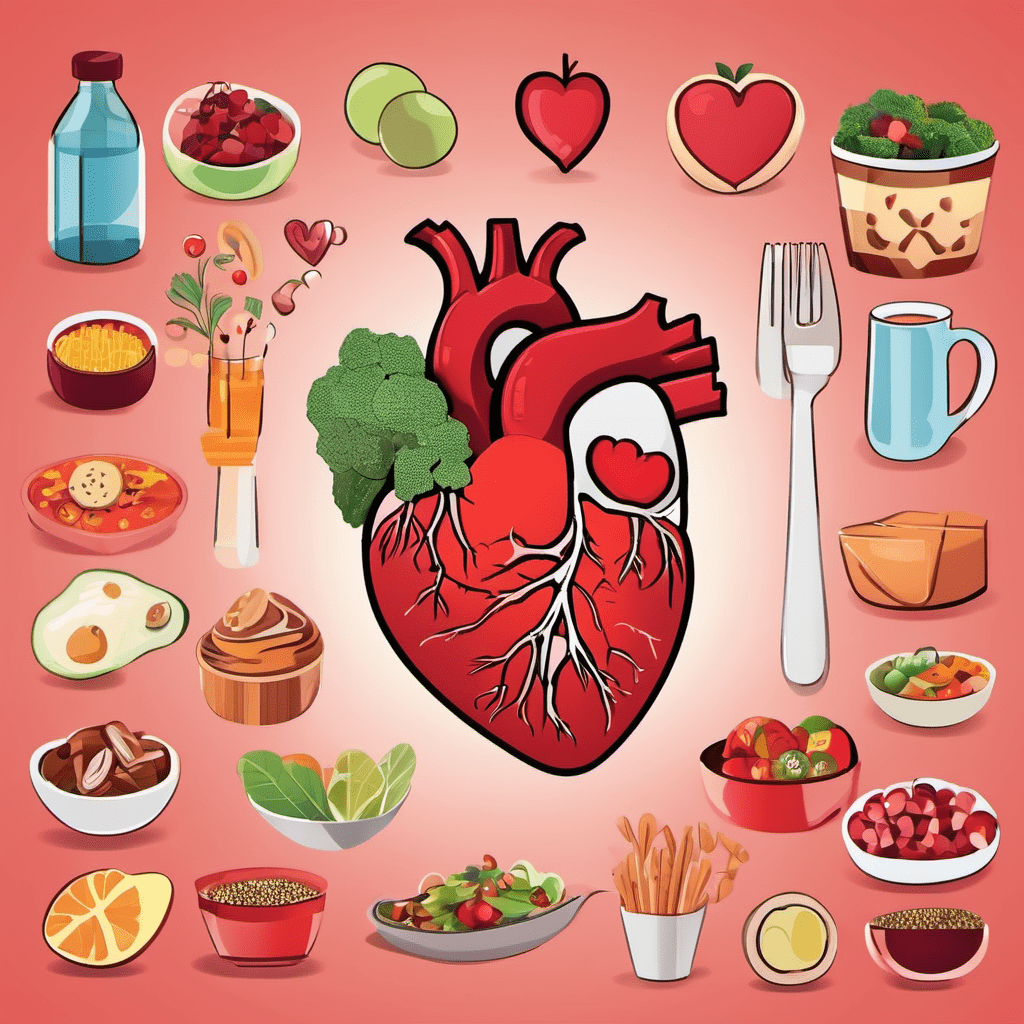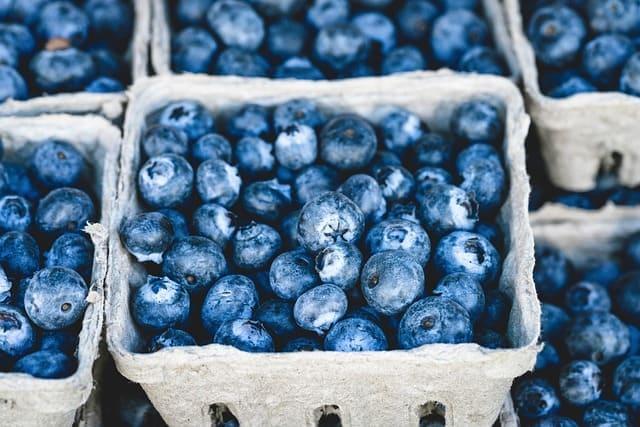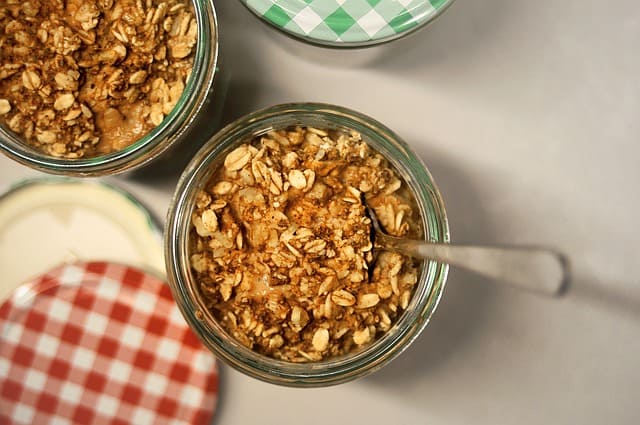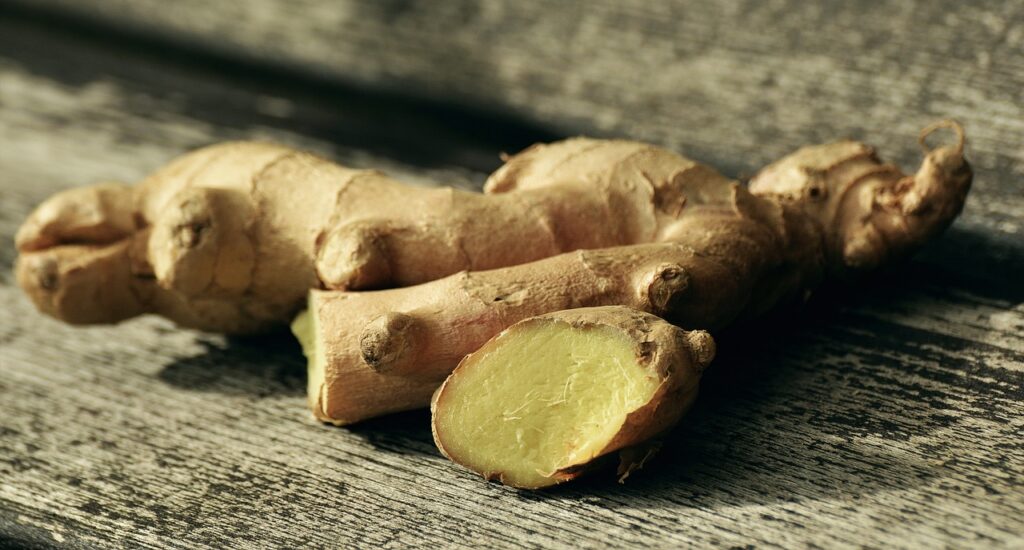Ensuring optimal heart health is an important aspect of overall well-being, and adopting a healthy and heart-friendly diet plays an important role in achieving this goal. A “heart-healthy diet” refers to a carefully selected selection of nutritious, heart-protective foods that contribute to cardiovascular health. This dietary approach emphasizes the inclusion of foods rich in omega-3 fatty acids, such as fatty fish, flaxseed, and walnuts, which are known for their ability to lower blood pressure and reduce the risk of heart disease. . Additionally, a heart-healthy diet promotes consumption of whole grains, fruits, and vegetables, which are rich sources of fiber, antioxidants, and essential vitamins. Reducing the intake of saturated fats, cholesterol and sodium is essential to this nutritional pattern, as these elements are linked to high cholesterol levels and high blood pressure. Through a nuanced understanding of “heart-healthy foods,” individuals can actively promote cardiovascular resilience, promote long-term vitality, and reduce the risk of cardiovascular disease.
In this article, we’ll explore a variety of foods known for their heart-boosting properties, giving you a comprehensive guide to maintaining good cardiovascular health.
1. Fatty Fish: Omega-3 Powerhouses
2. Nuts and Seeds: Nutrient-Rich Snacking
3. Berries: Antioxidant-Rich Superfoods
4. Oats: Soluble Fiber for Heart Wellness
5. Leafy Green Vegetables: A Powerhouse of Nutrients
6. Olive Oil: Heart-Healthy Fats
7. Avocado: Creamy and Heart-Friendly
8. Garlic: A Flavorful Heart Protector
9. Dark Chocolate: Indulge in Moderation
10. Green Tea: Heart-Protective Elixir
So now we will discuss each of the above mentioned food topics in detail:
1. Fatty Fish: Omega-3 Powerhouse
Fatty fish, known as an omega-3 powerhouse, plays a vital role in heart health due to its rich content of essential fatty acids like eicosapentaenoic acid (EPA) and docosahexaenoic acid (DHA). These omega-3 fatty acids exhibit remarkable cardioprotective effects by reducing triglyceride levels, lowering blood pressure, and reducing inflammation. Consuming fatty fish regularly reduces the risk of cardiovascular diseases, including heart attack and stroke. In addition, omega-3 contributes to maintaining healthy cholesterol levels and promotes optimal functioning of the heart and blood vessels. Including fatty fish like salmon, mackerel and trout in one’s diet is a practical and delicious means of supporting heart health and preventing cardiovascular problems.
2. Nuts and Seeds: Nutrient-Dense Snacking
Nuts and seeds emerge as nutritional powerhouses, offering a delightful combination of taste and health benefits. Packed with essential nutrients, these small but mighty snacks contribute significantly to heart health and overall well-being. Almonds, walnuts, pistachios, chia seeds, flaxseeds and sunflower seeds are just a few examples of this diverse group, each bringing their own unique set of nutrients.
First, these snacks are rich in heart-healthy fats, primarily monounsaturated and polyunsaturated fats. For example, almonds are rich in monounsaturated fats, while walnuts contain high amounts of omega-3 fatty acids. These fats have been linked to improving cholesterol levels, thereby reducing the risk of heart disease. Additionally, the fiber content present in nuts and seeds plays an important role in promoting heart health. Fiber helps lower cholesterol levels, control blood sugar and maintain a healthy weight. A handful of almonds or a sprinkle of chia seeds can add a satisfying crunch to your snacks while providing a vital dose of fiber.
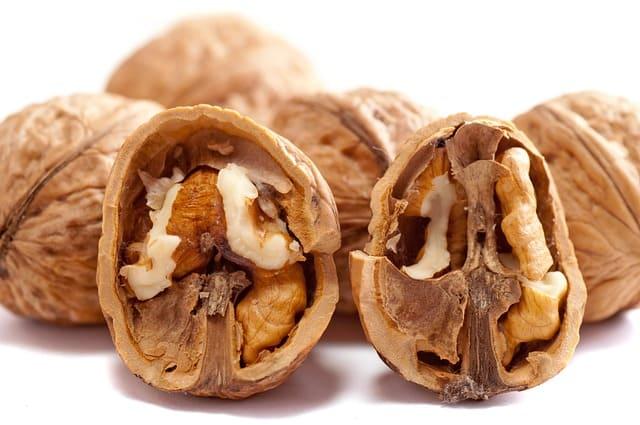 In addition, the vitamin and mineral profile of nuts and seeds enhances their nutritional attractiveness. Almonds are rich in vitamin E, an antioxidant that protects cells from oxidative stress, while pumpkin seeds are a great source of magnesium, a mineral essential for muscle and nerve function. Including a variety of nuts and seeds in your diet ensures a diverse range of nutrients, which contributes to overall health. Despite their calorie density, studies show that including nuts and seeds in small amounts may also help with weight management by promoting satiety and reducing total calorie intake throughout the day. In short, these nutrient-rich snacks provide a convenient and satisfying way to support heart health and nourish the body with essential vitamins, minerals and healthy fats.
In addition, the vitamin and mineral profile of nuts and seeds enhances their nutritional attractiveness. Almonds are rich in vitamin E, an antioxidant that protects cells from oxidative stress, while pumpkin seeds are a great source of magnesium, a mineral essential for muscle and nerve function. Including a variety of nuts and seeds in your diet ensures a diverse range of nutrients, which contributes to overall health. Despite their calorie density, studies show that including nuts and seeds in small amounts may also help with weight management by promoting satiety and reducing total calorie intake throughout the day. In short, these nutrient-rich snacks provide a convenient and satisfying way to support heart health and nourish the body with essential vitamins, minerals and healthy fats.
3. Berries: Antioxidant-Rich Superfood
A colorful and delicious group of fruits, berries have earned their reputation as a superfood due to their remarkable nutritional profile and numerous health benefits. Blueberries, strawberries, raspberries and blackberries are not only a treat for the taste buds but also a powerful source of antioxidants. These antioxidants, including flavonoids, anthocyanins, and polyphenols, play an important role in neutralizing free radicals in the body, thereby reducing oxidative stress and inflammation. These compounds contribute significantly to the cardiovascular health of individuals by protecting cells from damage and supporting overall well-being.
The vibrant colors of the berries aren’t just aesthetic; They indicate the presence of phytochemicals that provide a wide range of health benefits. Anthocyanins, responsible for the red, blue and purple colors in berries, have been linked to improved heart health. Studies show that regular consumption of blackberries may help lower blood pressure, reduce stiffness of the arteries, and enhance blood vessel function. The anti-inflammatory properties of berries contribute to the prevention of chronic diseases, including heart disease, making them a valuable addition to a heart-healthy diet.
Beyond the cardiovascular benefits, the nutritional richness of berries extends to their high fiber content, essential vitamins and minerals. Fiber promotes digestive health, aids weight management and helps control blood sugar levels. Berries are a low-calorie snack that is packed with nutrients, making them an ideal choice for those aiming to improve their overall diet. Whether fresh, frozen, or blended into smoothies, berries are a versatile and delicious way to incorporate many antioxidants and essential nutrients into your daily diet. In short, these antioxidant-rich superfoods not only tantalize the taste buds, but also contribute significantly to the overall well-being of individuals, promoting heart health and overall vitality.
4. Oats: Soluble Fiber for Heart Wellness
Oats stand as a nutritional powerhouse and a cornerstone of a heart-healthy diet, primarily due to its abundant soluble fiber content. Beta-glucan found in oats has received attention for its ability to reduce cholesterol levels, an important factor in maintaining heart health. Soluble fiber works by binding to cholesterol molecules and aiding their excretion from the body, thereby reducing overall cholesterol levels. It not only contributes to the prevention of atherosclerosis but also helps control blood pressure. Additionally, the sustained release of energy from the complex carbohydrates in oats promotes stable blood sugar levels, making it an excellent choice for people suffering from diabetes. Whether enjoyed as a warm bowl of oatmeal for breakfast or incorporated into recipes for baked goods and snacks, oats serve as a versatile and heart-protective addition to a balanced diet, which supports overall heart health. Promotes health.
5. Leafy Green Vegetables: A Powerhouse of Nutrients
Leafy green vegetables, including spinach, kale, Swiss chard and collard greens, are unrivaled powerhouses of essential nutrients that contribute to overall health and well-being. Rich in vitamins, minerals and antioxidants, these greens offer a variety of benefits, especially for heart health. Dark, leafy greens are rich in potassium, a mineral known for its role in maintaining healthy blood pressure levels. Potassium helps balance the effects of sodium, supports proper fluid balance and helps relax blood vessels, ultimately contributing to heart health.
Additionally, green leafy vegetables are rich in dietary nitrates, compounds that the body converts to nitric oxide. Nitric oxide plays an important role in widening blood vessels, improving blood flow, and enhancing overall vascular function. Regular consumption of green leafy vegetables reduces the risk of heart disease and stroke. These vegetables are low in calories and high in fiber, promoting satiety and aiding weight management – an essential aspect of heart health. Whether enjoyed in salads, sautéed as a side dish, or blended into smoothies, green leafy vegetables are a versatile addition to any diet, providing abundant nutrients that support not only heart health but overall vitality. And also supports longevity.
6. Olive Oil: Heart-Healthy Fats
Olive oil, a cornerstone of the Mediterranean diet, is revered not only for its rich flavor but also for its extraordinary heart-healthy properties. The monounsaturated fat in olive oil plays a major role in promoting cardiovascular health. Its primary component, oleic acid, is linked to several health benefits, including decreasing levels of bad cholesterol (LDL) and increasing good cholesterol (HDL). The anti-inflammatory and antioxidant properties of olive oil, due to compounds such as polyphenols, contribute to its cardio-protective effects by combating oxidative stress and inflammation within the cardiovascular system.
Extra virgin olive oil, obtained from the first pressing of the olives, retains the highest levels of antioxidants and maintains its natural flavor. It not only serves as a flavorful cooking oil, but is also a versatile ingredient in salads, marinades, and dips. Including olive oil in the diet reduces the risk of heart disease, stroke and high blood pressure. Additionally, the monounsaturated fats in olive oil have been shown to improve artery function and reduce the risk of blood clots. Although it is a calorie-dense source of fat, the overall nutrient content of olive oil, combined with its heart-protective properties, positions it as an important component of a heart-healthy eating pattern. Choosing high quality, extra virgin olive oil and using it as the primary source of fat in cooking is a delicious and health-conscious way to promote heart health.
7. Avocado: Creamy and Heart-Friendly
Avocado, with its creamy texture and rich flavour, turns out to be a nutritional powerhouse that not only enhances the culinary experience but also contributes significantly to heart health. Rich in monounsaturated fats, avocado is a heart-friendly fruit that can help improve cholesterol levels by increasing high-density lipoprotein (HDL) cholesterol while reducing low-density lipoprotein (LDL) cholesterol. The combination of monounsaturated fat, potassium and fiber in avocado contributes to lower blood pressure, promoting cardiovascular health. Additionally, avocado is a rich source of vitamins and antioxidants, including vitamin E, which plays a role in reducing oxidative stress and inflammation within the cardiovascular system. Whether sliced on toast, added to salads, or blended into smoothies, avocados offer a delicious and versatile way to incorporate heart-healthy nutrients into the diet while still providing a satisfying and creamy indulgence.
8. Garlic: A Flavorful Heart Protector
Garlic, known for its distinctive taste and culinary versatility, also holds a prominent place in the field of heart health. Rich in the sulfur-containing compound allicin, garlic is known for its potential cardiovascular benefits. Allicin has anti-inflammatory and antioxidant properties, which play a role in reducing the risk of heart disease. Garlic consumption is associated with improvements in lipid profiles, as it can help reduce total cholesterol and triglyceride levels, as well as increase high-density lipoprotein (HDL) cholesterol – the “good” cholesterol that protects against heart disease. Plays a protective role in health.
In addition to its effect on cholesterol levels, garlic has a vasodilatory effect, meaning it helps relax blood vessels, promoting better blood flow and potentially reducing blood pressure. This is especially important for individuals who want to manage high blood pressure and reduce the risk of cardiovascular complications. While raw garlic is often recommended for maximum allicin content, cooked garlic still provides the valuable heart-protective compound. From fried vegetables to pasta sauces, adding garlic to various dishes not only enhances the taste but also infuses the food with heart-boosting properties. While garlic can be a delicious addition to a heart-healthy diet, it is advisable to consult health professionals, especially for those taking blood-thinning medications, to be sure. So that it meets individual health conditions and dietary requirements.
9. Dark Chocolate: Indulge in Moderation
Dark chocolate, with its rich and intense flavour, emerges as a delightful treat that not only satisfies sweet cravings but also offers potential health benefits when consumed in moderation. The key lies in the cocoa content, as a higher percentage generally indicates more significant health benefits. Dark chocolate is a powerful source of flavonoids, a type of antioxidant that has been associated with improved heart health. Flavonoids may contribute to increasing blood flow, lowering blood pressure and reducing the risk of blood clots. Additionally, dark chocolate contains compounds such as theobromine and phenylethylamine, which may provide mood-boosting effects. When consuming dark chocolate, it is important to choose varieties with at least 70% cocoa content and consume it in limited quantities, as it is high in calories. A small daily portion can be a delightful addition to a heart-healthy diet, providing both a tasty treat and potential cardiovascular benefits.
10. Green Tea: Heart-Protective Elixir
Green tea, long renowned for its cultural significance and health-promoting properties, stands as a heart-protective elixir with a myriad of benefits. At the center of its health profile are catechins, a group of powerful antioxidants, particularly epigallocatechin gallate (EGCG), which are abundant in green tea. These catechins have been extensively studied for their potential role in reducing the risk of heart disease. Green tea consumption is associated with improvements in cholesterol levels, as it can reduce low-density lipoprotein (LDL) cholesterol and triglycerides levels while increasing high-density lipoprotein (HDL) cholesterol.
Additionally, green tea has anti-inflammatory and anti-thrombotic properties, which contribute to reducing the risk of blood clots and inflammation within the blood vessels. Regular consumption of green tea has been linked to improved artery function and blood pressure regulation. The relaxing effects of L-theanine, an amino acid found in green tea, enhance its heart-protective properties by promoting a feeling of calm and reducing stress, which can impact heart health. While green tea can be enjoyed hot or cold, it is important to note that its health benefits are optimized when consumed without excessive additives or sweeteners. Adding green tea to a balanced diet not only provides a soothing and aromatic beverage, but it also provides a refreshing way to support heart health and overall well-being.
Conclusion:
In the quest to maintain optimal heart health, the choices we make in our daily diets can be transformative. From the omega-3 powerhouses of fatty fish to nutrient-rich snacking of nuts and seeds, each food group makes a unique contribution to cardiovascular health. Berries, with their antioxidant-rich profile, join the lineup along with soluble fiber champ oats. The inclusion of leafy green vegetables, the heart-friendly fats of olive oil, and the creamy content of avocado further strengthen the heart-healthy arsenal. Garlic, a delicious preservative, and dark chocolate, enjoyed in moderation, add depth to these heart-conscious choices. Finally, green tea emerges as a heart-protective elixir, bringing soothing and antioxidant-rich extracts to this culinary journey. In this symphony of flavors and nutrients, it becomes clear that a diverse and balanced approach to nutrition, coupled with careful lifestyle choices, results in a powerful recipe for promoting not only heart health but overall vitality and well-being. Works as.
Remember, nourishing your heart is a continuous journey. Prioritize a balanced diet, regular exercise, stress management, and routine health checks. These small steps, combined with the power of your food choices, will keep your heart happy and healthy for years to come!
FAQs about Foods for Heart Health:
Q: What are the best foods for my heart?
A: Think rainbow! Focus on fruits, vegetables (especially leafy greens), whole grains, lean protein, and healthy fats like avocado, nuts, and seeds. Limit saturated and trans fats, sugary drinks, and processed foods.
Q: What nutrients are most important for heart health?
A: Fiber, potassium, magnesium, omega-3 fatty acids, and vitamins C and E play crucial roles in regulating blood pressure, cholesterol, and inflammation. Look for foods rich in these nutrients.
Q: How much fish should I eat for heart health?
A: Aim for 2-3 servings of fatty fish like salmon, tuna, or mackerel per week for omega-3 benefits. Choose low-mercury options and incorporate other seafood sources.
Q: Are nuts and seeds good for my heart?
Absolutely! A handful of nuts, seeds, or nut butter daily provides healthy fats, fiber, and essential minerals. Choose almonds, walnuts, chia seeds, or flaxseeds for maximum heart benefits.
Q: What about soy products?
A: Soybeans and tofu are good sources of plant-based protein, fiber, and isoflavones, which may improve cholesterol levels. Enjoy them in moderation as part of a balanced diet.
Q: Can I eat dairy if I have heart concerns?
A: Choose low-fat or fat-free dairy options like yogurt, milk, and cheese to reap calcium and protein benefits without high saturated fat intake. Consider plant-based alternatives if needed.
Q: How can I limit unhealthy fats?
A: Look for foods labeled “fat-free” or “low-fat,” avoid fried foods, and choose lean protein sources. Opt for vegetable oils like olive oil or avocado oil for cooking.
Q: What about dark chocolate?
A: Enjoy it in moderation (70% cocoa or higher) for potential benefits like improved blood flow and antioxidant effects. Remember, portion control is key.
Q: Are there any supplements I should take for heart health?
A: Talk to your doctor before taking any supplements. While some like omega-3s may offer specific benefits, a heart-healthy diet and lifestyle are the foundation.
Q: Where can I find reliable recipes and meal plans for heart health?
A: Check out resources from the American Heart Association, National Institutes of Health, and registered dietitians for delicious and heart-friendly recipes and meal ideas.

